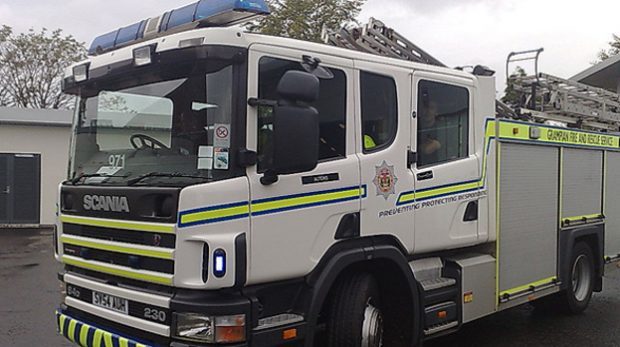Firefighters have been banned from attending some emergencies in the Western Isles – because they are unable to get to the mainland for vital training.
Concerns were raised last night after brigade inspectors claimed rules on the use of lifesaving equipment and personnel on the Outer Hebrides were “unnecessarily restrictive”.
In a new report, HM Fire Service Inspectorate said some retained and voluntary staff were unable to keep their breathing apparatus (BA) training up-to-date because they had poor or non-existent internet connections, and could not attend sessions on the mainland which were set to fixed dates.
The problems led to them being ordered to “no longer respond to emergency calls” – despite being fully trained in every other way.
Barra and South Uist councillor Donald Manford said last night that he would be raising the issue with fire chiefs at a meeting in the islands today.
“These matters are of very significant concern,” he said.
“They will be at the top of the agenda at the meeting in Barra with senior members of the fire service. I will be asking them how these issues will be addressed.”
The fire service watchdog said the opening last month of a new training centre at Stornoway Airport would improve the situation on Lewis and Harris.
But it warned that staff on more remote islands including Benbecula, Barra and North and South Uist may still have to travel 200 miles to Glasgow for training.
“Staff were being told they could no longer respond to emergency calls because their BA competency had expired, even if they had other attributes, such as being a driver,” the report said.
“This places increased pressure on other members of the crew at that station, who somehow have to cover for that staff member’s absence.”
Western Isles Council convener Norman Macdonald – who is a retained firefighter on the islands – insisted that the new training facility on Stornoway would resolve many of the problems.
He said: “There have been issues in the past. At the time of the inspection there were issues in relation to training and ease of access, but that has been overtaken by events, given the investment in new facilities.”
However, Councillor Manford claimed that the “quickest way” to get from Barra to the new training facility in Stornoway was “through Glasgow anyway”.
The report said: “We observed that the SFRS (Scottish Fire and Rescue Service) was making notable investment into the Western Isles in terms of training and station facilities and this is to be welcomed.
“But an ongoing focus on the training difficulties faced by staff, both in relation to geographical location, and access to broadband services, will be required into the future.”
The inspectors also called for a change to protocols which require a station or appliance to be marked as “unavailable” if it is more than eight minutes away from an emergency.
The report said: “This is not a sensible restriction where the next closest appliance is over half an hour away or more, and is not logical at all where the appliance is the only resource on an island.”
Overall, the inspectors concluded that the geographical challenges in the Western Isles “were being met”, but that the service “has more work to do” to ensure that it “remains viable for the future”.
A fire service spokesman said: “We welcome this positive report and note its conclusions that we are meeting the geographical challenges of operating an effective fire and rescue service in the Western Isles.
“The report shows crews are well equipped with resources, highlights the dedication of our staff in the area and makes clear that we are making considerable investment in training and facilities there.
“It also reflects the strong partnerships we have in place to protect the public and engage effectively with the council, ensuring local responses to agreed local needs.
“We strive for continuous improvement and have already begun to address a number of the recommendations.”
